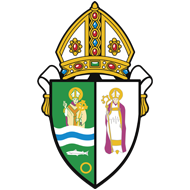There are generally two points of contact when arranging a funeral – the undertaker (who may prefer to be thought of as a “funeral director” these days) and the priest or lay reader from the church who is going to be conducting the service itself.
A funeral should be arranged in a way that ensure that those who will be attending are not rushed or anxious.
It is important that either the person arranging the funeral (who will generally be a friend or family member of the person who has died) checks that the church and the person conducting the service are available before agreeing a time with the undertaker.
If someone was a regular worshipper in a Scottish Episcopal Church, it is entirely appropriate that their funeral service may take the form of a communion service.
Many clergy of the Scottish Episcopal Church would strongly encourage those arranging funerals to hold the main part of the funeral service in the peace and dignity of the local church building rather than a Funeral Director’s parlour or a crematorium.
Those in the church who conduct funerals, generally clergy or lay readers, will be able to offer advice on the content of the service itself using resources drawn from the Scottish Episcopal Church’s Funeral Rite.
The easiest funerals to arrange are for those who have made some preparations for their own funeral before they have died.
Local clergy are generally willing to help people to plan ahead and are sometimes used as a resource by those who would like to think about their own funeral whilst they are fit and well.

